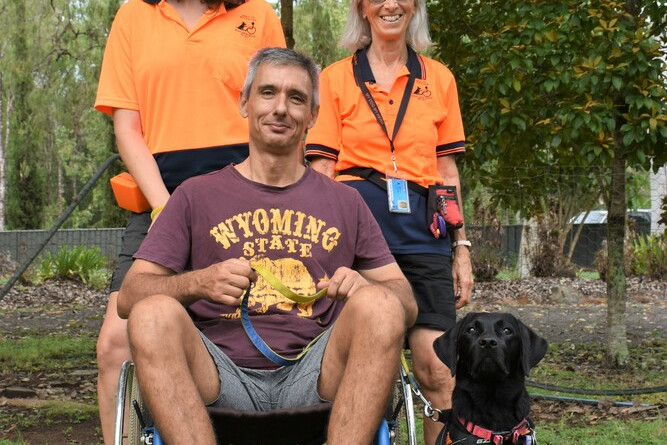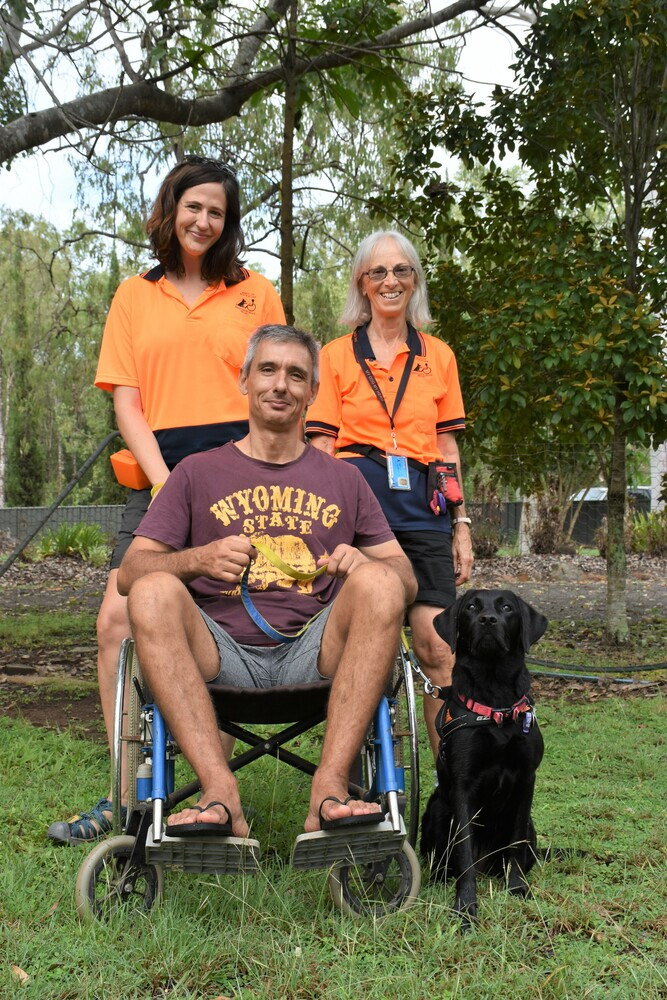Community & Business
18 March, 2022
Support dogs are back in training
TRAINING puppies for two decades, Assistance Dogs North Queensland has helped people who struggle with a disability regain their confidence and independence every day.

The non-for-profit organisation trains dogs from a very young age, with Labrador Lily one of two currently learning the ropes.
Covid forced the training to stop for the past two years, but now the group is back up and ready to get furry friends ready to care for their humans.
Head trainer Carly Starr couldn’t stress enough how important an assistant dog’s role was for some people in the community and, together with her assistant trainer Ann Pierson, they work hard to get them up to standard.
“The idea is that they will help people have a greater sense of independence with day-today tasks,” Ms Starr said.
“We start by socialising them by taking them out to experience day-to-day life and get them use to the lights and noises they will see when they are out working and we teach them obedience and complex skills which includes opening and closing doors, getting their clothes, putting dishing in the sink.
“They can set off alarms and alert people if they’re going to have a seizure or if they are having anxiety, which is extremely important to their care.”
Ms Starr said their rewards came from the feedback they received from people who receive the dogs.
“They really can change people’s lives, we have a lady who has a dog for her seizures and notifies her when she’s about to have a seizure so she can lay down,” Ms Starr said.
“This means she can be independent, and you can see their confidence really boosted when they have an assistance dog.”
Assistant dogs are legally classified as “medical equipment”, and are considered under the Disability Discrimination Act 1992.
This means that if an assistant dog is in public with the person they are caring for, others should not approach the dog as it can distract the animals from their work.
“When the dogs are working, we ask that people don’t approach the dog and they usually work one-on-one with the recipient,” Ms Starr said.
“They are allowed in most public places like shopping centres and taxis. The only place they’re not allowed is the Emergency and Operating Ward.”
To donate, apply to board a dog, membership and more information, visit: https://asdogsnq.com.au/



